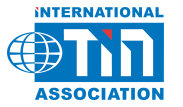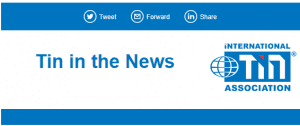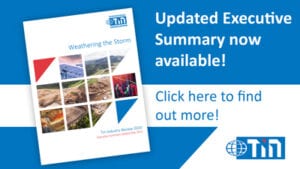The London Metal Exchange (LME) published a position paper in early October outlining proposed responsible sourcing requirements for LME-listed producer brands. Tin has been listed alongside cobalt as an “automatic higher-focus metal” within the proposals.
The LME’s development of its own responsible sourcing requirements is a response to evolving requirements of the EU mineral due diligence regulation and the increasing requirements from downstream industry for action in this area on metals aside from tin, with allegations of child labour in the cobalt supply chain an important catalyst for the new LME approach. The LME intends for all relevant metal producers that are listed on the exchange to assess their individual risk factors related to responsible sourcing and demonstrate compliance with a system conforming to the OECD Due Diligence Guidance for Responsible Supply Chains of Minerals from Conflict-Affected and High-Risk Areas (OECD Guidance). The LME is now looking for further feedback on its proposals from all of its stakeholders.
Under the proposals, tin producers will be required to adopt a standard that is aligned with the OECD Guidance and must demonstrate implementation of activities to this standard through an appropriate audit process. Further additional audits to standards relating to environmental management and occupational health are also required. The proposed timeline is that chosen standards for tin must be identified by the final quarter of 2019 and full compliance of tin brands with the chosen standards will be required by the end of 2020 to prepare for legal requirements of the EU regulation by January 2021. Non-compliant brands will be considered for delisting once the audit deadlines have been passed.
Our View: The International Tin Association (ITA) and our members have taken a proactive approach to responsible sourcing with the development of the ITA Code of Conduct (“The Code”). The Code represents an all-encompassing set of sustainability standards for the tin industry, including environmental and health and safety performance. The Code also asks producers to report on supply chain due diligence according to their operational context. The association has a unique track record of implementing successful large-scale mineral supply chain due diligence in high-risk areas, leading the development and operation of the ITSCI programme in four countries of Central Africa and internationally. The OECD recently completed an alignment assessment of five industry initiatives in which ITSCI was independently confirmed to be the only system to achieve 100% alignment of standards with the OECD Guidance. ITA Members began reporting against the Code in early October and all members are expected to complete reporting shortly.


